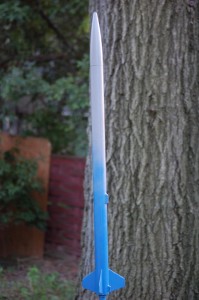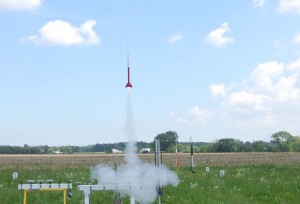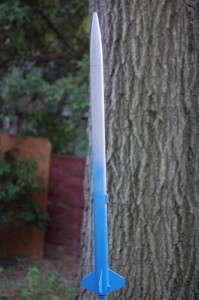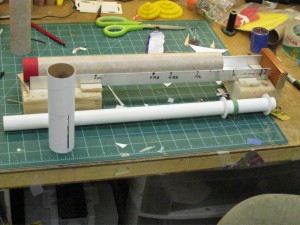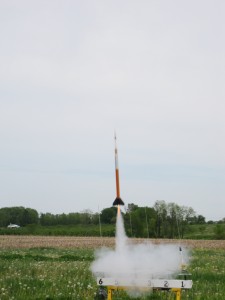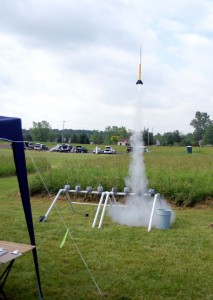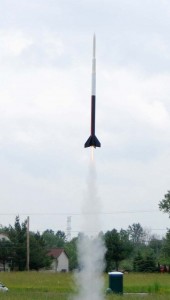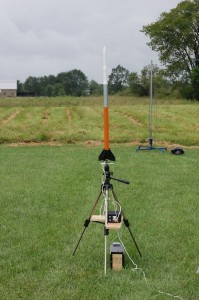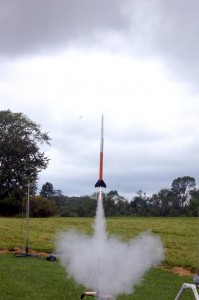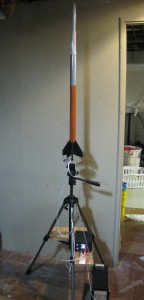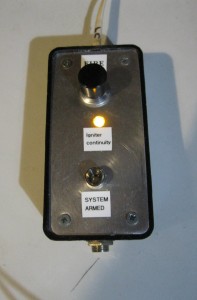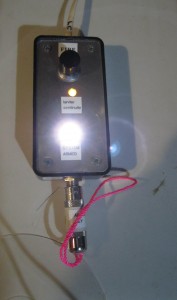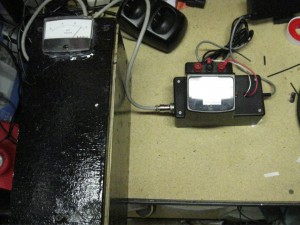(July 30th, Cuyahoga Falls, OH)
Born from the Pegasus booster project, we bring to the world, the Perseus Medium Power Booster.
Here’s the quick rundown:
Stronger, Lighter, Faster. The Perseus launch vehicle system was developed to allow for heavier payloads than the Artemis booster can lift, and at much faster speeds.
The Artemis boosters reach their maximum capacity with loads slightly heavier than a standard 9 volt battery. To lift anything heavier involves going faster than the 250 MPH limit of the Artemis design.
This is where Perseus comes into the picture. Built to go much faster than 250 MPH (the design can easily go near supersonic speeds) and being much lighter, many more electronic payload experiments are possible, including dual deployment systems to allow us to send this rocket to over 2,000 feet in altitude.
One neat feature is slightly raised launch lugs, so the launch rod doesn’t rub against the body (causing friction). This feature was pioneered on the Pegasus booster.
Another feature brought over from the Pegasus booster is “through the wall” fin mounting, which is the secret behind breaking the Artemis Booster speed limit.
This rocket also features a slightly advanced version of the ejection baffle system / parachute bay configuration used in the Artemis boosters.
The first flight of Perseus booster “Eagle” (Mission PLS-001) is set for August 14th.
The booster is named after the famous “Eagle” lunar lander that took man to the moon for the first time.
((( )))
